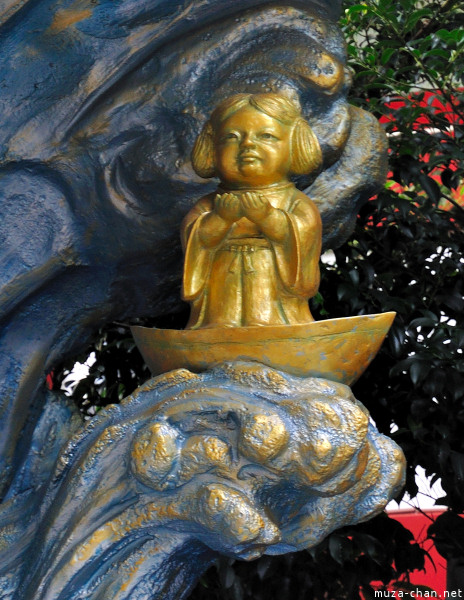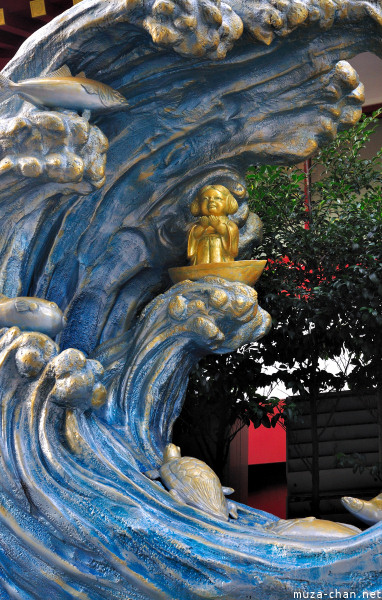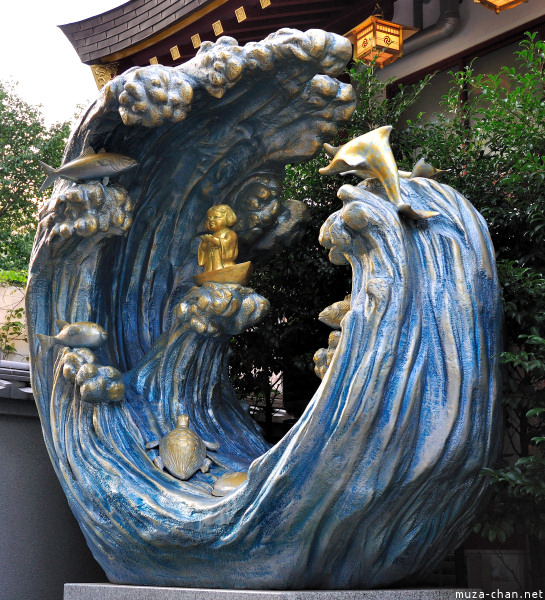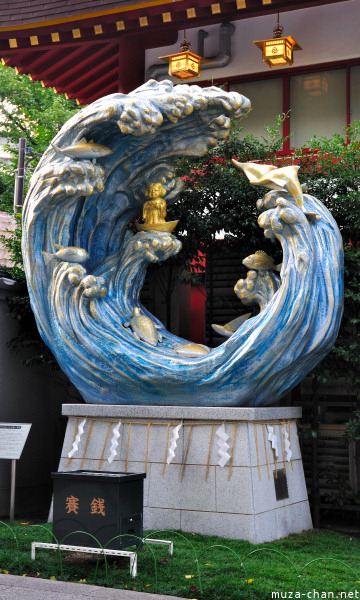At the Kanda Myojin Shrine I photographed this beautiful statue of Ebisu, one of the Seven Gods of Luck (Shichifukujin), God of fishermen, good fortune and commerce, the only god from the Seven Gods of Luck originating from Japan.

Usually, Ebisu is represented with a fishing rod in the right hand and with a big fish in the left hand, a symbol of good fortune. The statue from Kanda is different, representing Ebisu as a child and referring to the story of Ebisu’s childhood.

Ebisu was originally named Hiruko and he was the first child of the gods Izanagi and Izanami, and according to some interpretations of his name (meaning “leech child"), he was born without bones. As he could not stand on his feet, before reaching 3 years old, Hiruko was put in a boat of reeds and cast adrift into the sea.

The statue represents the moment when he was washed ashore, probably in Hokkaido, where an Ainu named Ebisu Saburo (戎三郎) took him into his care. His bones grew and at the age of three years he became the God Ebisu.

Ebisu is also known as the “Laughing God", because it has a very cheerful nature and, given this story, he is also known as a protector of small children.

